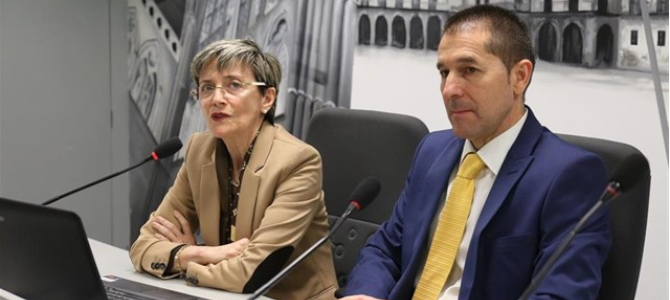The León City Council and the company Aguas de León, members of the NEXUS project consortium, have presented to the capital of León this innovative initiative, coordinated by the CARTIF Technology Centre and financed by the European LIFE program, which aims to promote the sustainability of the cycle urban water by demonstrating the use of small-scale hydroelectric power plants to recover unused energy in existing water distribution networks.
The LIFE NEXUS project, with an initial budget of 1,158,000 euros and subsidized by the European Commission by 60%, will take advantage of the electricity dissipated in the Porma drinking water treatment station and it is expected that this pioneering hydraulic prototype will be extended to 30 European cities in the future. The Councilor for Urbanism and Environment of León, Ana Franco, and the manager of Aguas de León, Manuel Salas Palenzuela, have offered a press conference explaining the details of what will be a major step in environmental policy for the city.
The ultimate goal of the project is to achieve “an environmental saving that promotes the circular economy”, according to Ana Franco. “We seek to accumulate enough surplus and when there is more need for energy not have a deficit,” she has added. Additionally, Salas Palenzuela has pointed out that they provide “an economic savings of about 10,000 or 12,000 euros a year in energy that will be completely self-consumed”.
The project partners are working since last October on the design of the prototype and it is expected that at the end of the year it will be installed in the aforementioned hydraulic station. The equipment to be installed will have an average power of 25 kW and “will generate an energy of 215 MWh / year of renewable electricity, achieving a reduction of the carbon footprint of 140 tons of CO2 every year”, Councilor Franco has clarified.
The consortium of companies is led by CARTIF and completed by AQUATEC, the Lithuanian company ASU, the Polish IMP-PAN and the aforementioned Aguas de León, which work to achieve savings and optimization of resources and which has already put its seed in the capital of León.

